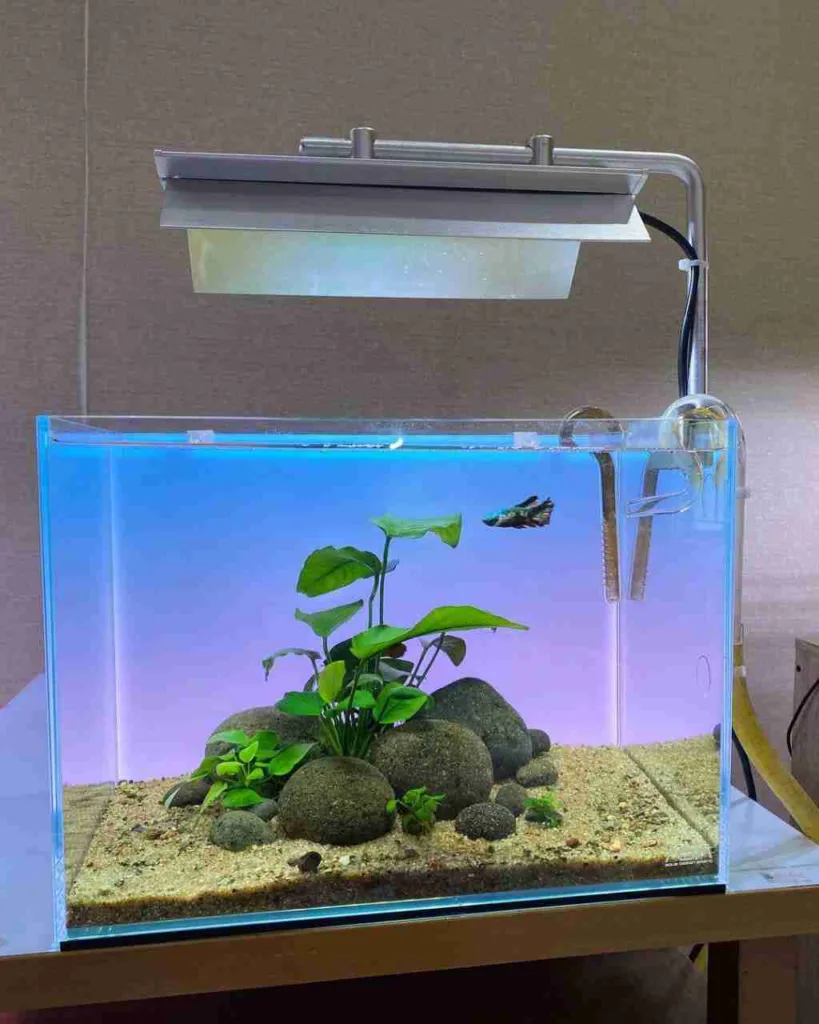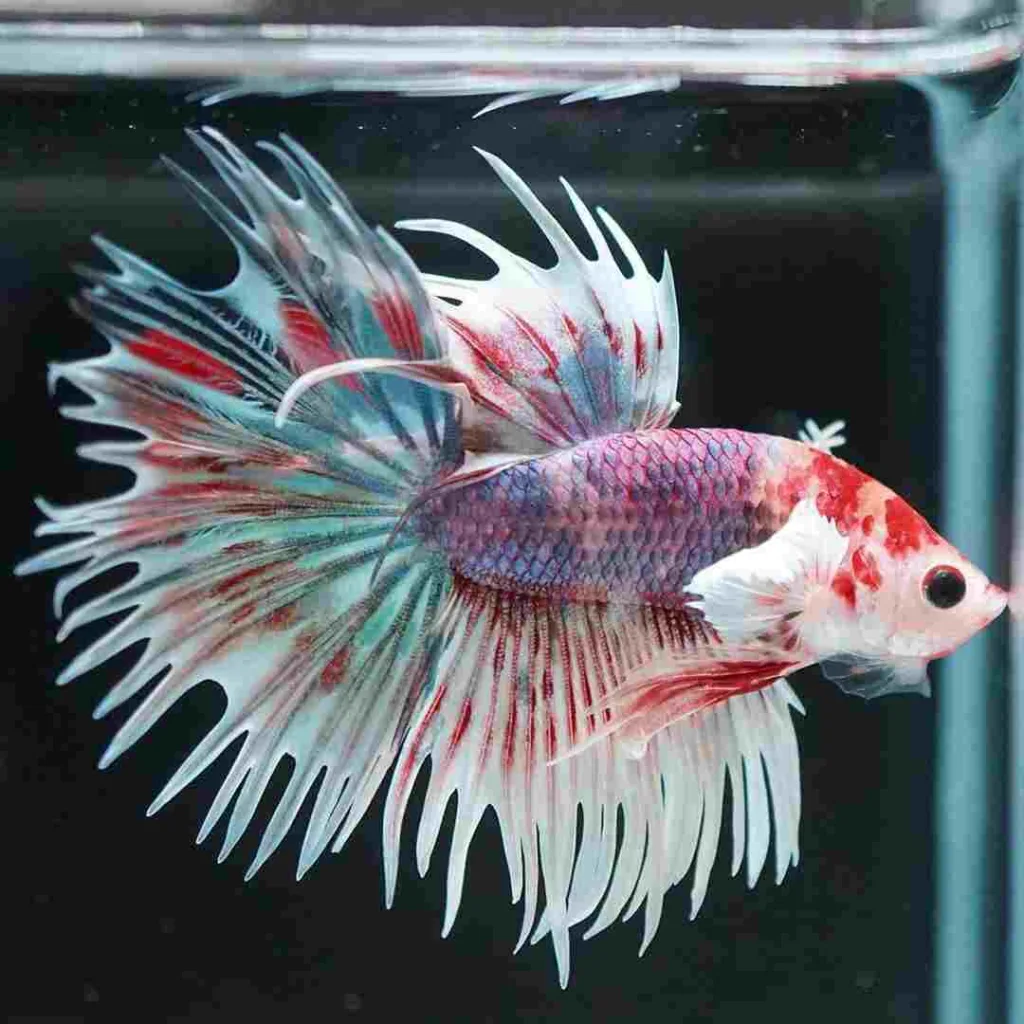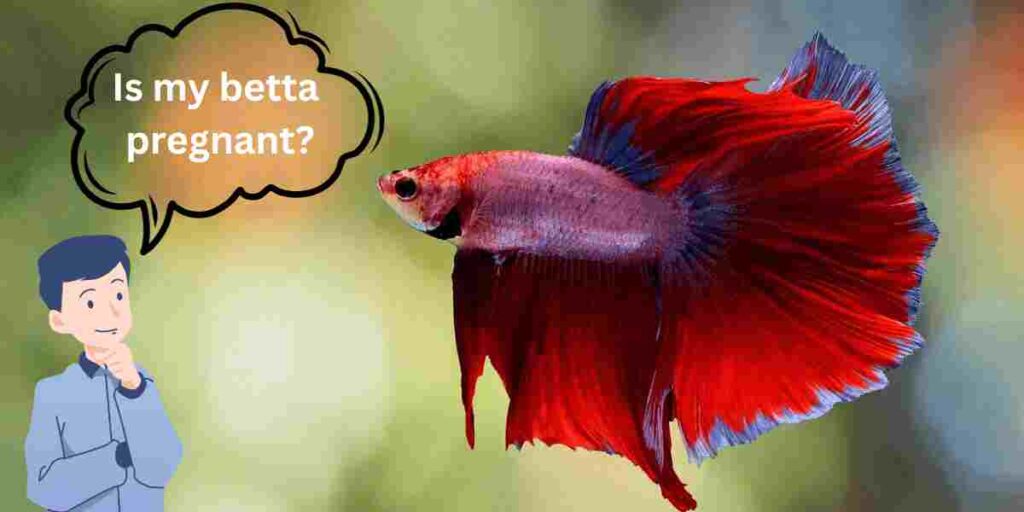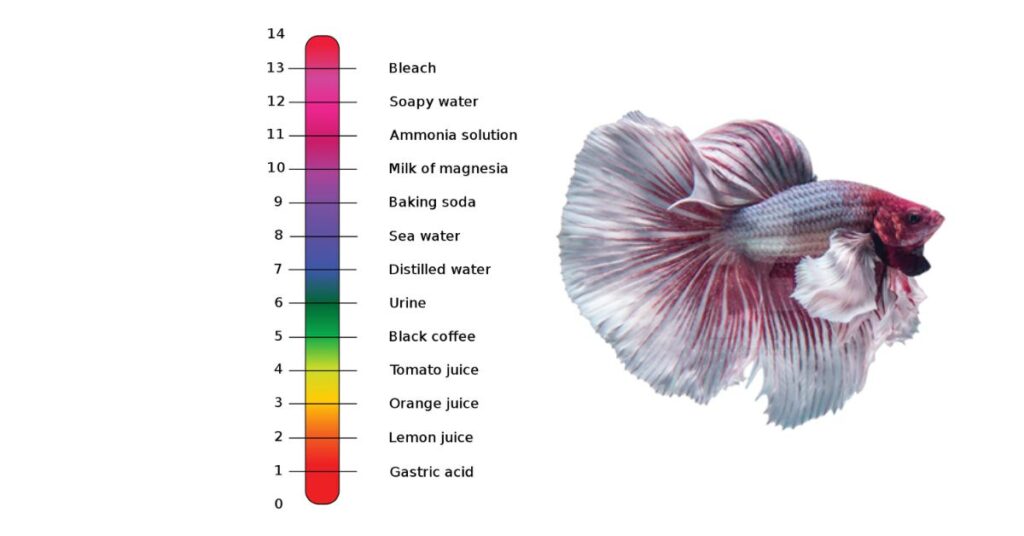Understanding the feeding habits of these charming aquatic pets is crucial for their overall well-being. Let’s embark on a journey into the realm of betta fish nutrition and uncover the secrets behind their resilience.
how long can betta fish go without food?
Have you ever wondered about the remarkable resilience of betta fish when it comes to fasting? Unlike some other fish species, bettas can endure short periods without a meal. While it’s not the ideal scenario, bettas can go about 10-14 days without eating.
However, it’s crucial to understand that this doesn’t mean you should turn their meals into sporadic events. Consistent and regular feeding is essential for the well-being of your betta friend. So, while they can withstand brief fasting periods, maintaining a reliable feeding schedule is the key to a healthy and happy betta.
So, what’s the preferred cuisine for betta fish?
Have you ever wondered about the gastronomic preferences of betta fish? Surprisingly, bettas aren’t too picky about their meals, but they do have specific dietary needs that cater to their well-being.
In their natural habitat, bettas feast on a menu of insects and larvae, sustaining their vibrant colors and energy. In captivity, replicating this diet is crucial for their optimal health. Bettas thrive on a well-balanced diet, primarily consisting of high-quality pellets. Additionally, incorporating frozen or live treats such as brine shrimp provides essential nutrients and mimics their natural feeding habits.
For a touch of culinary variety, occasional delights like bloodworms can be introduced. These not only add excitement to their meals but also contribute to the overall nutritional diversity necessary for their flourishing life in captivity. Understanding and meeting their dietary needs ensures a happy and healthy betta in your aquarium.
What factors influence a betta’s ability to withstand hunger?
Understanding the factors that affect a betta’s ability to endure hunger is crucial for their overall well-being. Several elements come into play in determining how long a betta can go without food.
Age:
The age of a betta is a significant factor. Generally, younger bettas tend to handle fasting better than their older counterparts. Their vitality and resilience contribute to their ability to withstand hunger for relatively longer periods.
Health Status:
The overall health of a betta plays a pivotal role in its ability to endure fasting. Healthier bettas, free from underlying issues, are better equipped to handle periods without food compared to those with existing health concerns.
Environmental Conditions:

The conditions within the betta’s habitat are critical. Tank parameters, including water temperature and quality, directly impact their metabolism and, consequently, their ability to endure hunger. Maintaining optimal environmental conditions is essential for their overall well-being.
Understanding and considering these factors will help you gauge how long your betta can go without food and tailor their care accordingly. Providing a suitable environment and monitoring their health contribute to a happy and thriving betta in your aquarium.
How can you tell if your betta is hungry?
Recognizing when your betta is hungry is crucial for maintaining their well-being. Bettas are not shy about expressing their hunger, and they exhibit clear signs when they’re ready for a meal. Here’s how you can tell if your betta is hungry:
Increased Lethargy:
If you notice your betta becoming more lethargic than usual, it could be a sign of hunger. A hungry betta might show reduced activity levels and spend more time resting.
Loss of Color Vibrancy:
Hunger can affect the vibrancy of a betta’s colors. If you observe a dullness or fading in their usual vibrant hues, it may indicate that they are in need of a meal.
Disinterest in Surroundings:
A hungry betta might display disinterest in its surroundings. If they seem less responsive to stimuli or show a lack of engagement, it could be a signal that they are ready to eat.
Observing their behavior and recognizing these cues is essential for understanding their hunger patterns. While bettas can endure short fasting periods, attending to their feeding needs promptly ensures a happy and contented betta in your aquarium.
How often should you feed your betta?

Ensuring a proper feeding schedule is vital for the well-being of your betta. While these resilient fish can endure short periods without food, maintaining a consistent feeding routine is recommended for their optimal health.
Frequency:
It’s generally advised to feed your betta once or twice a day. This regular feeding routine mimics their natural eating patterns and helps prevent overfeeding, which can lead to various health issues.
Balance is Key:
Finding the right balance is crucial. Overfeeding can result in problems like bloating and constipation, negatively impacting your betta’s health. Offering the appropriate amount of food ensures they receive the necessary nutrients without risking their well-being.
Establishing a feeding routine and adhering to the recommended frequency will contribute to a healthy, vibrant, and content betta in your aquarium.
Is occasional fasting beneficial for bettas?
Absolutely! Introducing occasional fasting into your betta’s feeding routine can be highly beneficial. This practice mirrors their natural feeding patterns observed in the wild and offers several advantages for their well-being.
Preventing Obesity:
Fasting once a week helps prevent obesity in bettas. This intentional break from regular feeding prevents excessive calorie intake, ensuring your betta maintains a healthy weight.
Digestive Health:
Occasional fasting acts as a form of detox for your finned friend, promoting optimal digestive health. It allows their digestive system to take a break, reducing the risk of issues like bloating and constipation.
By incorporating occasional fasting into your betta’s care routine, you are providing them with a balanced and healthy approach to nutrition. It’s a simple yet effective way to contribute to the long-term well-being of your aquatic companion.
What if you can’t feed your betta for an extended period?
Life’s demands can sometimes disrupt our routines, including the feeding schedule for your betta. If you find yourself unable to feed your betta for an extended period, here are some practical solutions:
Seek Assistance:
Consider reaching out to a trusted friend or neighbor who can assist with feeding your betta. Having someone reliable to care for your finned friend ensures they receive the necessary nourishment during your absence.
Automatic Feeders:
Invest in an automatic feeder. These devices are designed to dispense pre-measured amounts of food at scheduled times. They provide a convenient and reliable solution, ensuring your betta is fed even when you’re unable to attend to their dietary needs.
Betta Fish Automatic Feeding Schedule
| Time | Feed Type |
|---|---|
| 8:00 AM | High-Quality Betta Pellets |
| 12:00 PM | Frozen or Live Treat (e.g., Brine Shrimp) |
| 4:00 PM | High-Quality Betta Pellets |
| 8:00 PM | Regular Pellets |
| 12:00 AM (Midnight) | Overnight Fasting (No Feeding) |
By proactively addressing potential feeding challenges, you can ensure that your betta remains healthy and well-fed, even during times when you can’t personally attend to their care.
Can overfeeding harm your betta?
Absolutely, overfeeding your betta can have detrimental consequences on their health. It’s crucial to be mindful of the quantity of food you offer to maintain your betta in top-notch condition.
Bloating:
Overfeeding contributes to bloating, a condition where the betta’s stomach becomes distended. This can lead to discomfort and potentially more severe health issues.
Constipation:
Excessive food intake often results in constipation for bettas. This condition can impact their digestive system and overall well-being.
Swim Bladder Problems:
Overfeeding is a common cause of swim bladder issues. A betta with swim bladder problems may struggle with buoyancy and exhibit abnormal swimming patterns.
Providing the right amount of food, in accordance with your betta’s dietary needs, is essential. It helps maintain their health, prevents potential issues, and ensures a happy and thriving betta in your aquarium.
How should you reintroduce food after a betta fast?
After a fasting period, it’s crucial to reintroduce food to your betta gradually. Follow these steps for a smooth transition:
Start with Small Portions:
Begin by offering small portions of food. This cautious approach prevents the risk of overeating and allows your betta’s digestive system to adjust gradually.
Observe Your Betta’s Response:
Pay close attention to how your betta responds to the reintroduction of food. Watch for signs of interest, normal feeding behavior, and ensure they don’t display any signs of distress.
By taking these steps, you create a seamless transition back to regular feeding for your betta. This careful reintroduction helps prevent digestive discomfort and ensures your finned friend continues to thrive in their aquatic home.
Conclusion: Caring for Your Betta’s Well-being
In the vast aquarium of betta care, understanding their feeding habits is fundamental. Balancing regular meals with occasional fasting ensures a healthy and happy betta. Keep an eye on their behavior, maintain a consistent feeding schedule, and your betta will reward you with its vibrant presence for years to come.


